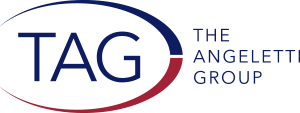By now, you’ve likely heard that in November of 2023, the IRS introduced proposed regulations targeting donor
advised funds (DAFs), aiming to clarify tax rules governing these giving vehicles. While the proposals avoid contentious issues like minimum DAF payout and transparency requirements, they focus on another hot issue: taxing fees paid from DAFs to donors’ personal investment advisors.
What are DAFs?
DAFs are essentially giving accounts managed by tax-exempt nonprofits. When individuals contribute to DAFs, they receive immediate tax deductions. The sponsoring organization then grants donors advisory privileges to direct donations to various recipients over time. The organization retains final say over where the money is directed.
The surge in DAFs, influenced by the wealth defense industry, raises questions. These entities, including lawyers and financial managers, are perceived as promoting DAFs for reasons unrelated to charitable giving.
Critics argue that DAFs serve sponsor and donor interests over nonprofits. Donors can exploit DAFs to maximize tax deductions, maintain anonymity, and bypass grant disclosure requirements. Additionally, a considerable amount of money circulates among DAF sponsors annually, disadvantaging both nonprofits and taxpayers.
What are the changes being proposed?
The proposed IRS regulations address specific sections of the tax code related to DAFs. Some changes are straightforward and clarify terms like donors and distributions. However, controversy surrounds some others:
1. Taxing inappropriate distributions: 20% excise tax on a sponsor that makes a taxable distribution – a distribution to a person or a group that’s not a qualified charity.
2. Counting single-entity funds as DAFs: Expands the definition of DAFs to prevent misuse by individuals with influence over both DAFs and recipient nonprofits.
3. Taxing fees paid to personal investment advisors: Identifies investment advisors as donor-advisors, subjecting their fees to 5% excise taxes, sparking significant opposition from financial and legal firms servicing DAFs.
There has been fervent opposition from lawyers and wealth managers, demonstrating the prevalence and profitability of advisor fees within DAFs. However, this dynamic comes at the expense of taxpayers and operating nonprofits, diverting resources intended for public benefit.
What’s Next?
With the comment period closed and a hearing completed, the industry now waits for the IRS to announce any official regulation changes. Calls for additional reforms, including establishing payout mandates and enhancing transparency, echo widespread support. As DAFs play an increasingly significant role in nonprofit organization funding, creating equitable laws and regulations for donors and sponsors becomes even more imperative.
The Angeletti Group provides support to nonprofit organizations who manage donor-advised funds.
Contact us today.


